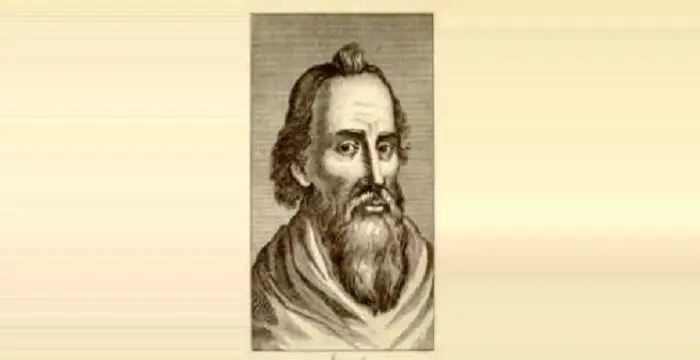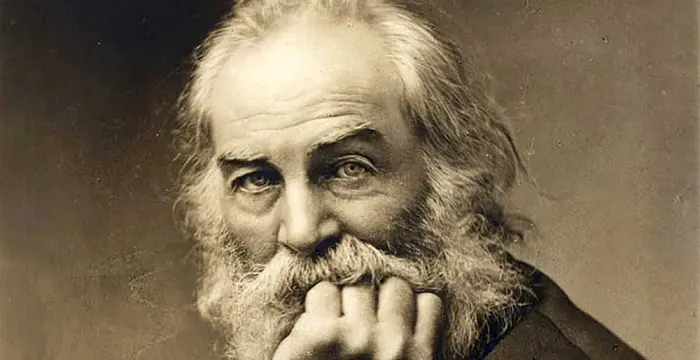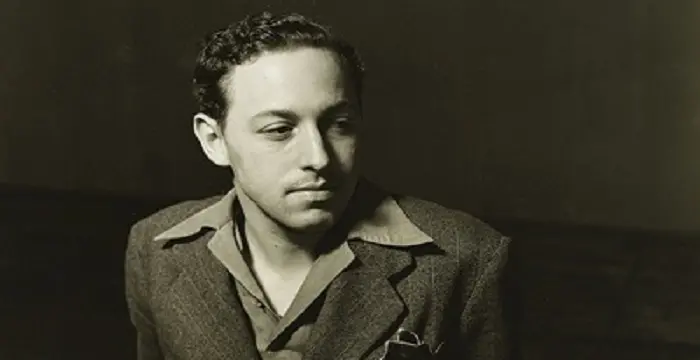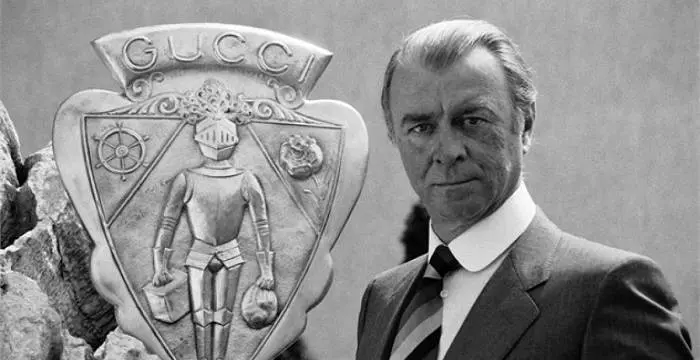
Juvenal - Poets, Timeline and Family
Juvenal's Personal Details
Juvenal was a famous ancient Roman poet who wrote the critically acclaimed the ‘Satires’
| Information | Detail |
|---|---|
| Birthday | 55 |
| Died on | January 1, 127 |
| Nationality | Italian |
| Famous | Writers, Poets |
| Birth Place | Aquino, Italy |
| Gender | Male |
| Born in | Aquino, Italy |
| Famous as | Poet |
| Died at Age | 72 |
// Famous Poets
Charles Bukowski
Charles Bukowski was a German-born American novelist, short story writer and poet. With this biography, learn in details about his childhood, life, works, career and timeline
Seamus Heaney
Nobel Laureate Seamus Heaney was an Irish poet, playwright and translator. Know about his profile, childhood, life and timeline in the biography below.
Walt Whitman
Walt Whitman was an American poet, journalist and humanist. Read this brief biography to find more on his life & timeline.
Juvenal's photo
Who is Juvenal?
Decimus Iunius Iuvenalis, popularly known as Juvenal, was a Roman poet active in the period between late 1st and early 2nd century AD. He was the author of the famous work, the “Satires”. There isn’t much information about his life but the references to the known people of the late 1st and early 2nd centuries AD in his works helps to fix the date of their composition. His writings follow the corrosive manner of Lucilius, who originated the genre of Roman satire and holds the poetic tradition that also included Horace and Persius. Juvenal wrote around 16 poems in dactylic hexameter, in which he had covered an encyclopedic range of topics across the Roman world. His important work, the “Satires”, provide a critical source for the study of ancient Rome from a vast number of perspectives.
// Famous Writers
Joyce Meyer
Joyce Meyer is a Christian author and speaker. This biography provides detailed information about her childhood, life, achievements, works & timeline
Temple Grandin
Temple Grandin is a well-known American writer, autistic activist and animal expert. This biography profiles her childhood, life, achievements, career and timeline
Tennessee Williams
Tennessee Williams was one of the greatest playwrights of the 20th century. This biography of Tennessee Williams provides detailed information about his childhood, life, achievements, works and timeline.
Biography detail
Juvenal Childhood & Life
The present available evidences aren’t enough to locate the precise details of Juvenal’s life. His well-known biography, “Vita Iuvenalis“ (Life of Juvenal) was actually nothing more than an inference from the “Satires” themselves. According to traditional biographies like “Vita Iuvenalis”, Juvenal was son of a rich freedman. It was said that he was a pupil of Quintillian, and to have practiced rhetoric till he was middle-aged, both as amusement and for legal purposes. He started his career of satirist in the later phase of his life. Few of the biographies put the location of his birth at Aquinum. Only one of these traditional biographies states that he was born in 55 AD. Many of these biographies agree on the fact that Juvenal spent a part of his life in exile, most probably because of insulting an actor with high levels of court influence. It further said that he was banished by Emperor Domitian. Most of these biographies place the location of his exile at Egypt except one which states that he went to Scotland for exile. Some of these biographies affirm that he died in exile while others avow that he was recalled to Rome. There are still uncertainties over the reliability of the content of these biographies. As such, it cannot be predicted as to how much content of these biographies is fiction or factual.
The majority of the available details about him are mere deductions from his writings but some elements appear more substantial than others. Juvenal had never mentioned about a period of exile in his writings, but the fact of his exile was there in most of the surviving biographies. Many scholars consider the whole idea of exile an invention of later people. The “Satires” mentions about Egypt and Britain; which is probably why the idea that Juvenal was exiled in these locations has evolved. Some scholars, especially Gilbert Highet, believe that the exile actually took place and is factual. These scholars also estimate a fix period for the exile, from 93 AD until 96 AD, when Nerva became Emperor. In 96 AD, when Domitian was assassinated, Juvenal returned to Rome. He had no money or career and had to live on the charity of the rich. Based on the autobiographical information provided in the “Satire 11”, his condition improved in few years and in later years of his life, he lived comfortably in Rome and also had a farm at Tibur. The later satires show a relative change in his tone and some elements of human kindness. Even though there is no exact reference to his death, he probably died in or after 127 AD.
Works
Juvenal was best known for his significant 16 satiric poems, collectively known as the “Satires”. These poems mainly describe about the life of Rome under the rule of various Emperors such as Domitian, Nerva, Trajan and Hadrian. These poems were published separately at intervals in five books. The first Book or the Book One had satires 1-5 which described the horrors of Domitian’s dictatorial reign. It was published between 100 AD and 110 AD. The second Book contained a single enormous Satire 6 and had references to the year 115 AD. The third Book comprised of Satires 7, 8 and 9. This book opened with the praise of Emperor Hadrian who was said to be a great admirer of literature. He endowed a literary institute to help authors. The Book Four had Satires 10, 11 and 12. The last and final Book Five contained Satires 13-16. This book also had two references to the year 127 AD. These “Satires” are based on two prominent themes, the corruption of the society in Rome and the indulgences and the brutalities of the mankind.
In the first Satire, Juvenal describes that the vice, crime and abuse of wealth had reached such a point that he could easily write satire but it was dangerous to lash out powerful men in their lifetime so he preferred taking examples from dead. However, he didn’t follow this principle uniformly and sometimes, made examples from living contemporaries. In Satire 2, he mocks the passive male homosexuals and in Satire 9, he mocks on both active and passive homosexuals. The third Satire, a friend of Juvenal writes why he left the crowded and corrupt Rome. He said that Rome has been ruined by Greeks and other immigrants and he is abandoning his life of a dependent in the city to live in a peaceful and quiet country. In the Satire 4, he writes how the Domitian called his cabinet to discuss an idiotic petty problem of cooking a large turbot on an ordinary pan. In the fifth Satire, he mocks on a dependent man by describing the humiliation he has to face whenever his patron invites him to dinner. Satires 6, consists of a massive 600 line poem and ruthlessly speaks about the cruelty, arrogance and sexual depravity of Roman women.
In the seventh Satire Juvenal describes the poverty and wretchedness of Roman intellects that were unable to receive decent rewards for their work. Satire 8 attacks on the craze of hereditary nobility. Satire 10 is one of his best poems and describes how the ambitions of mankind like wealth, power, glory and personal beauty leads to disappointment or problems whereas the mankind should look forward to a sound mind in a sound body and a brave heart. The eleventh Satire shows how he invites an old friend to a quiet dinner and discusses the excessively showy feasts of rich people. Satire 12 is a small poem pointing out the difference between true and mercenary friendship. In Satire 13, he consoles a friend and sarcastically speaks how such misdeeds are common. The Satire 14, denounces those parents who teach avarice to their children. In Satire 15, he describes how a riot in Egypt tore a man into pieces and ate him showing that man is crueler than animals. In Satire 16, he declares that he will survey the privileges to professional soldiers but the poems remained incomplete after line 60.
Influence
For long time, Juvenal’s work remained forgotten till 200 AD when the Christian propagandist Tertullian started reading and quoting his works. Later, his works were read and studied by other Christian authors and pagan students of literature. Juvenal was later imitated by many satirists like Giovanni Boccaccio, Nicolas Boileau and Lord Byron. His work, the “Satires” inspired many authors including Samuel Johnson who based his “London” on Satire 3 and his “The Vanity of Human Wishes” on Satire 10.
// Famous Italian peoples
Pietro Boselli
Pietro Boselli is an Italian model, engineer, teacher, and fitness athlete who became famous as the ‘world’s sexiest math teacher’. Check out this biography to know about his birthday, childhood, family life, achievements and fun facts about him.
Guccio Gucci
Guccio Gucci was a famous fashion designer from Florence, Italy, and the founder of the world-renowned fashion brand ‘Gucci.’ Check out this biography to know about his childhood, family, personal life, career, etc.
John Cabot
John Cabot was an Italian navigator and explorer who was the first European to discover the coast of North America. Check out this biography to know about his childhood, life, and achievements.
Juvenal's FAQ
When was Juvenal died?
Juvenal was died at 0127-01-01
Which age was Juvenal died?
Juvenal was died at age 72
Where is Juvenal's birth place?
Juvenal was born in Aquino, Italy
What is Juvenal nationalities?
Juvenal's nationalities is Italian
How famous is Juvenal?
Juvenal is famouse as Poet








